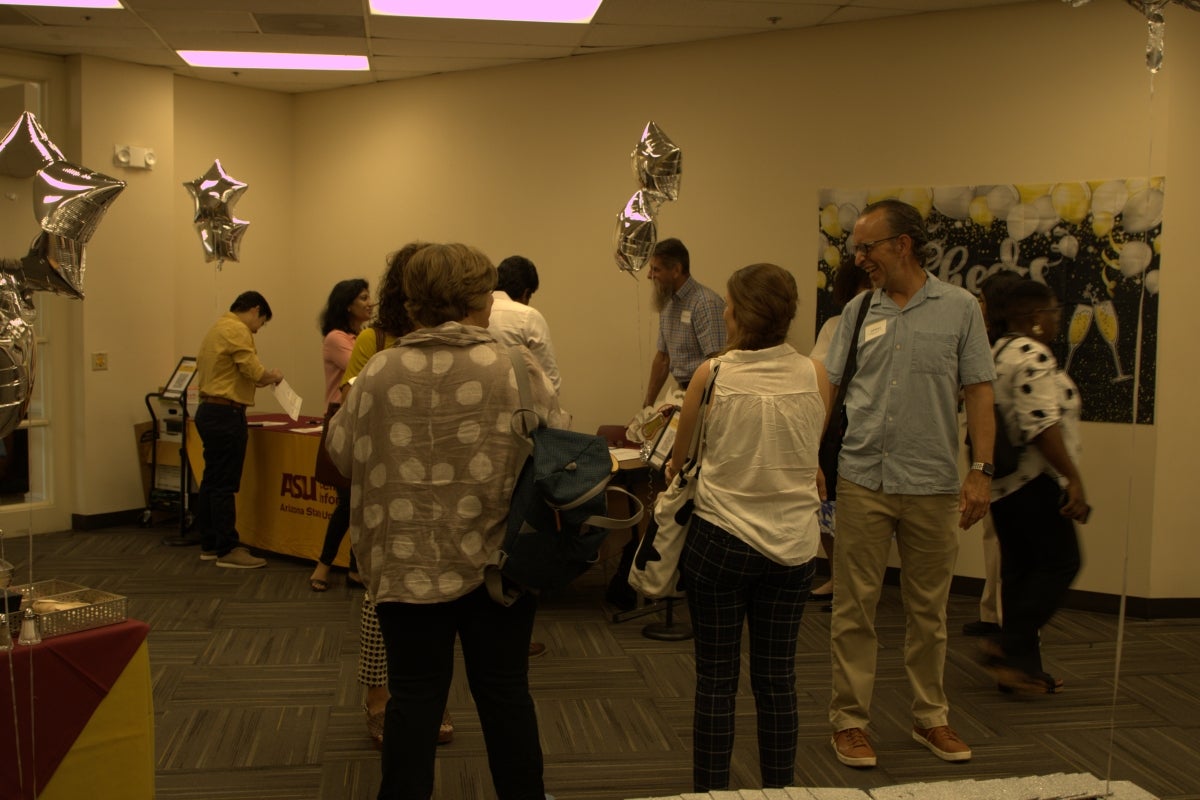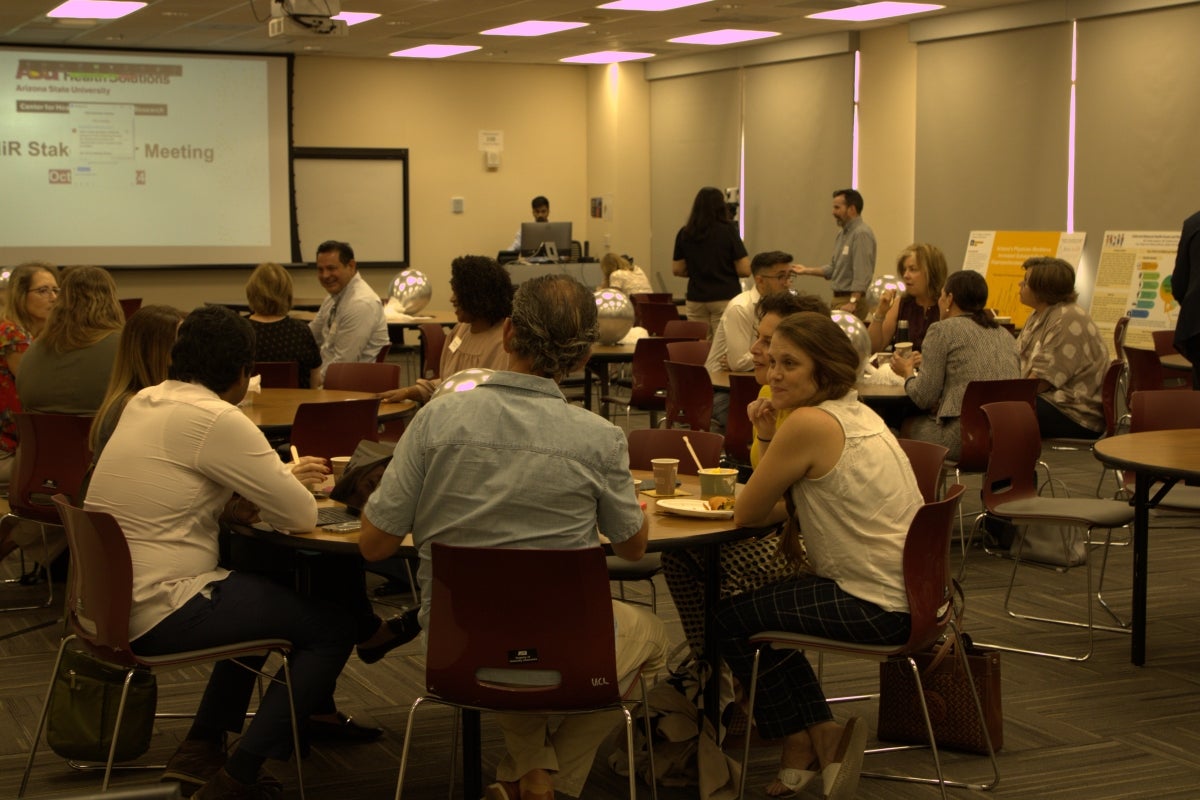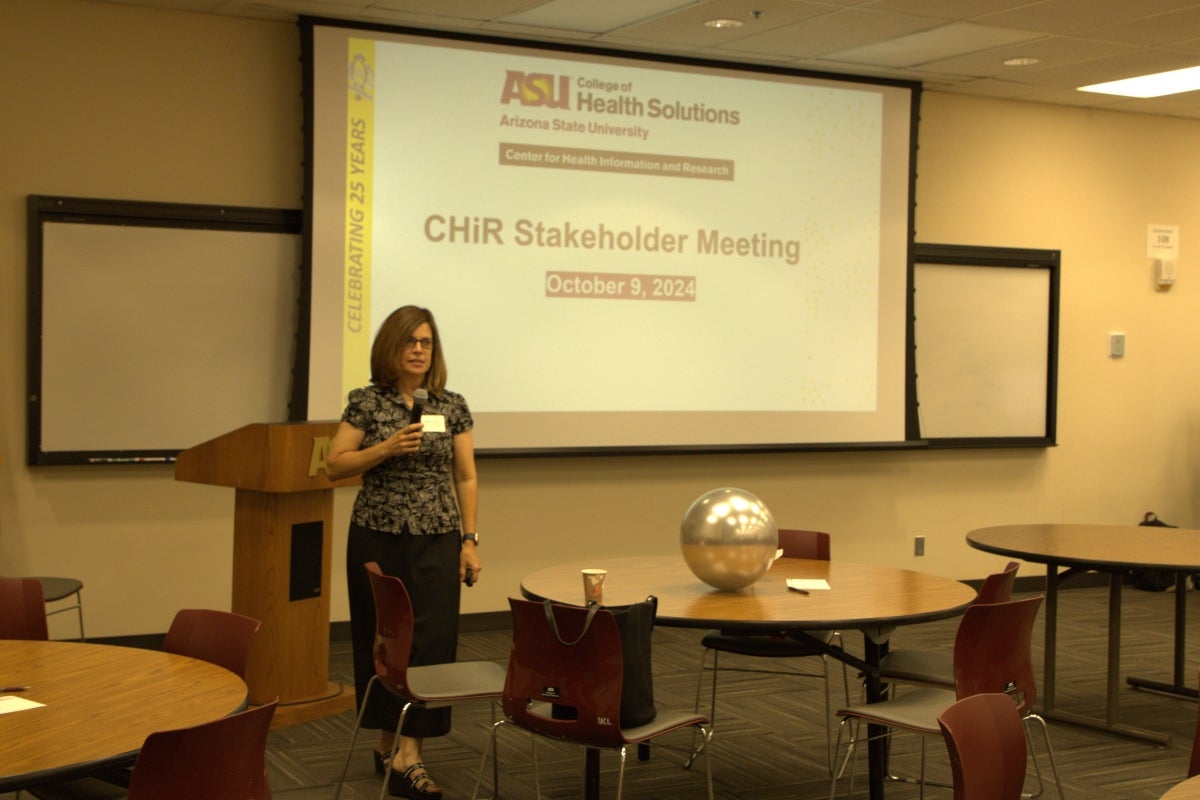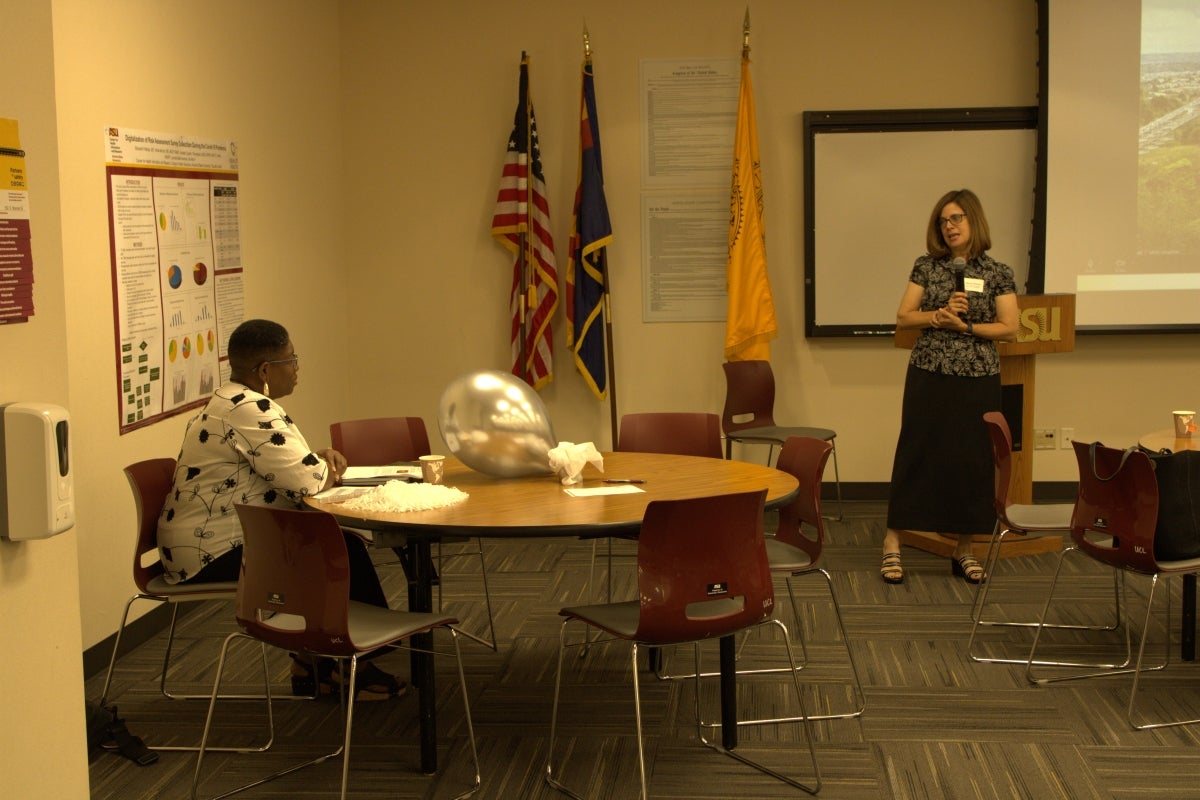The Center for Health Information and Research at ASU celebrates its 25th anniversary
After 25 years of ups and downs, CHiR is stronger than ever

Every staff and student who worked for CHiR or volunteered at CHiR. Photo Courtesy of College of Health Solutions
The College of Health Solutions’ Center for Health Information and Research (CHiR) at ASU has come a long way.
CHiR is a center where professors, non-profits, or institutions come with a research project or other data request and ask CHiR if they can access data and information to inform their project or study. CHiR has become such an effective resource, that it is considered one of the leading health and information research centers in Arizona.
In October, CHiR held its Biannual Stakeholder Meeting to celebrate a quarter-century of success. The meeting was attended by professionals in the local health sector, project stakeholders, and current and former CHiR staff.
CHiR used this meeting to highlight its transformation into what it is today and to also showcase new research that is being done to improve the health of Arizona populations.
CHiR’s historic research includes projects such as The Yuma Project on Uninsured Children, the Arizona Physician Workforce, and many more.
The transformation of CHiR was presented by longtime CHiR staff member Tameka Sama, who started at CHiR back in 2004. Sama led the presentation with a fun and sincere attitude, thanking all of those who worked at CHiR.
“Many have come and gone, but I would say the majority enjoyed their stay at CHiR because of its culture,” Sama said. She also thanked the hospital systems and other health organizations who put their faith in CHiR when it started and those who continue to put their faith in it today.
CHiR has worked on all types of studies, researched health topics from the cradle to the grave, and is eager to continue this work with its stakeholders. As a HIPAA-regulated research center, CHiR has built long-term relationships with state agencies, county departments and local health institutions.
Some of those include the Arizona Health Care Cost Containment System (AHCCCS), Arizona Criminal Justice Commission, Connections Health Solutions, Banner Health, Dignity Health, Mayo Clinic Arizona, and many more.
But how did CHiR get to where it is today?
In 1999, then-ASU Professor and founder of CHiR, William “Bill” Johnson started the Health and Disability Research Group (this later changed into CHiR after the group was given Center status by ASU in 2007). He saw a gap in the data being collected by hospitals, insurers and clinics that weren’t being used.
He launched a grassroots effort to obtain that unused data, knocking on the doors of Arizona hospital systems, insurers, clinics and anyone else who would listen to him. Most organizations were willing to share their data with CHiR.
CHiR originally resided in the then College of Business and later moved to the Ira A. Fulton Schools of Engineering and then to the Provost Office. Finally, in late 2012, ASU created the College of Health Solutions, which has been the home of CHiR ever since.
However, it wasn’t all sunshine after joining the College of Health Solutions. In 2013, two years after Johnson stepped down as director, Sama and former Technical Leader Gevork Harootunian went through four directors in three years. CHiR almost closed its doors, but Sama and Harootunian fought to keep them open.
“At that point, it was just Gevork and I maintaining the center,” Sama said. “We both made the decision to stay on the ship and fight for CHiR to remain open.”
After a review of CHiR’s data repository and the relationships and studies built around it, the center was deemed too valuable to close. George Runger, a long-term collaborator with CHiR, took the reins and led CHiR from 2014 to 2021, closely tying the center to the former Department of Biomedical Informatics which he also directed. In 2022, Marisa Domino came aboard as CHiR’s executive director.
CHiR is looking to the future and is excited about its upcoming studies. One is being led by Tiffany Lemon, an assistant professor at the College of Health Solutions.
Lemon is researching incarceration and public mental health and taking a deep look into the state of mental health in Arizona, second to last in the country. She aims to understand what can be done to change it.
When asked about having all the resources at CHiR to be able to complete this research project without having to worry about money, staff, and other potential factors, she said it felt great.
“To have everyone here feels really empowering,” Lemon said.
To researchers, clinicians, policymakers, students and others who are looking for a trusted partner to provide information and analytics to a study, CHiR is ready to work with you.





